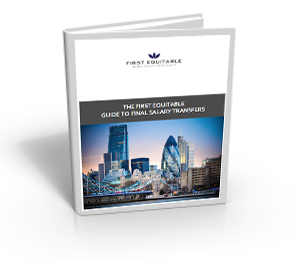Why have final salary transfer values increased?

Whilst the long-term economic effects of the Brexit vote remain far from certain, the impact on gilt yields was far more dramatic, with yields dropping below 1% for the first time in history.
As investors look to safer investments, the demand for gilts increases; this has the effect of increasing prices which reduces yields. With gilt yields falling to historically low levels, this has a knock on effect on the annuity market as the annuity providers are the biggest purchasers of gilts, which they use to back up their annuities. Following the fall in yields, Standard Life, Canada Life and Legal & General all announced they would be reducing their annuity rates. Not good news for those approaching retirement.
One man’s loss is another man’s gain
As is often the case with movements in the financial world: one man’s loss is another man’s gain; the winners in this case perhaps members of defined benefit pension schemes. According to data from pension actuary Xafinity, the Xafinity Transfer Value Index increased by £16,000 over the month of August, which is an increase of 7%; since the beginning of 2016 the index has increased by a massive £37,000 (18%).

The Xafinity Transfer Value Index tracks the transfer value that would be provided by an average defined benefit scheme member aged 64 that is entitled to a pension of £10,000 per year starting at age 65. (Source: www.xafinity.com)
Historically when discussing transfer values, income multiples of 20 were most common, this meant that with a projected pension of £10,000 per year, a cash equivalent transfer value of £200,000 would have been the average sum offered. Following the recent fall in gilt yields there have been reports of some members being offered multiples as high as 33 times their projected pension.
The cause and effect
This increase in value happens because there has been a sharp fall in AA-rated corporate bond yields, which in turn track gilt yields. Defined benefit pension schemes then use these gilt yields to place a value on their future pension liabilities. When a pension scheme produces a Cash Equivalent Transfer Value (CETV) in today’s money, the scheme will refer to these yields to calculate the future cost of the pension promises. The cost to the scheme of paying for future pension promises rises as gilt and corporate bond yields fall, and as such pension scheme actuaries need to compensate for the reduction in yields by increasing the CETV.
Not good news for everyone
Whilst most schemes are offering higher transfer values, it is not a given for all schemes, particularly if the scheme is underfunded. In this case the trustees can commission an insufficiency report, which will allow them to offer lower transfer values than would normally be payable. It should also be noted that the values offered also vary between schemes, with some offering far less favourable values than offers. This can be related to the different rates of increase that will apply, the level of spouses pensions, discretionary benefits; some schemes also offer enhanced transfer values as they hope to increase member take up and to reduce their future liabilities.
If falling gilt yields are good news for members that are looking to transfer away from their defined benefit schemes, they are certainly not good news for the schemes themselves. As yields fall this has the knock on effect of increasing the cost for schemes to meet their future liabilities and the result: the UK’s final salary pensions schemes overall deficit increased by £89billion in one month to reach a deficit level of £384billion by the end of June 2016.
Keeping things in context
The increasing deficit is sure to increase anxiety but it also needs to be put in context: pension funds do not pay their liabilities in full at once, much can be attributed to those members still in work. In the short-term then, a deficit need not be a huge concern as funds may still have time to make up the shortfall if conditions become more favourable. Trustees also have a responsibility to make good any underfunding within the scheme.
Importance of receiving good advice
Deciding whether to transfer from a defined benefit pension scheme is a huge decision, as this involves giving up valuable fixed benefits that may be very difficult to replicate outside of the scheme. Even with the generous transfer values that are on offer, taking the cash transfer value certainly won’t be in everyones best interest, and once you have decided to transfer out there is no going back on your decision. The FCA have now introduced a requirement to seek advice from a pension transfer specialist if you wish to leave your defined benefit scheme and the cash equivalent transfer value exceeds £30,000.
If you are considering transferring your pension, or would like to receive advice regarding your pension planning as a whole; please fill in the contact form and speak to a pension transfer specialist at First Equitable who will be able to assist you further.




